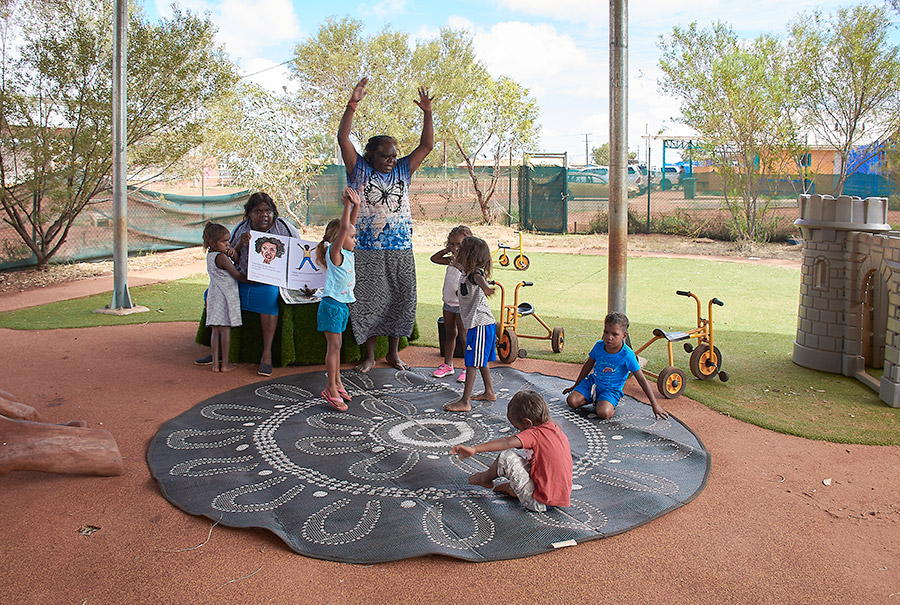Language and culture in our schools

“Education is the key” is the motto of our acclaimed Warlpiri Education and Training Trust (WETT) program. And central to education are country visits, according to many residents in the four communities working with us.
The program operates in Willowra, Yuendumu, Nyirrpi and Lajamanu, remote communities in the Tanami Desert northwest of Alice Springs. It invests royalties from Newmont Goldcorp’s Tanami gold mine in a range of education and training initiatives, including country visits. Each of the schools in these communities gets up to $50,000 annually to facilitate ‘learning on country’ excursions.
In a major review review of the program in 2017, respondents in all four communities were unequivocal about the significance of Warlpiri language practice and teaching which the country visits seek to support. The review’s authors – Aboriginal education specialists – in fact urged much wider recognition of the role country visits play here, flagging additional benefits.
“The opportunities that flow out of the learning on country for meaningful “red dirt” or two-way learning – potentially connecting with rangers, environmental scientists and other specialists with expertise in supporting learning on country activities – must be brought to the fore,” the authors said.
They said the country visits promote intergenerational learning and “applied and deeper cultural and ecological learning than is possible within classrooms”, potentially breaking down barriers between the schools and communities.
Elders receive additional payments to impart their knowledge – in Warlpiri – to the students on site. As Lajamanu elder Angela Nangala Kelly explains, “We teach them how to look for bush foods and how to dig for it too. They learn about country, how to dig for water and look after ngapa (water) places.”
“Now they all have mobiles and new technology,” says Barbara Napanangka Martin, a teacher and driving force behind the program. “But they still need to be going out with the old people and learning about places and names, ceremony and making artefacts.”
Ms Martin links this to the Warlpiri theme cycle, principles and practices that guide Warlpiri learning. So did the WETT review, saying “country visits are a central part of the teaching and learning in the Warlpiri theme cycle.”
Further WETT funding is matching the cycle to the NT school curriculum in the hope that this initiative will further embed and legitimise the teaching of Warlpiri in the classroom, protecting it from the repetitive cycles of opposition to bilingual education within the school system.
The opposition is surprising given the country visits’ importance simply as a learning motivator in schools that can struggle with attendance. Says a young educator from the Yuendumu School quoted in the review: “When we take kids out bush they are learning as soon as we get there. They all find something and we teachers have to explain it to them: when, where, what.”
WETT-supported country visits are fostering this natural inquiry. In fact, “without WETT support,” said the 2017 review, “these activities would not have a place in schools.”

